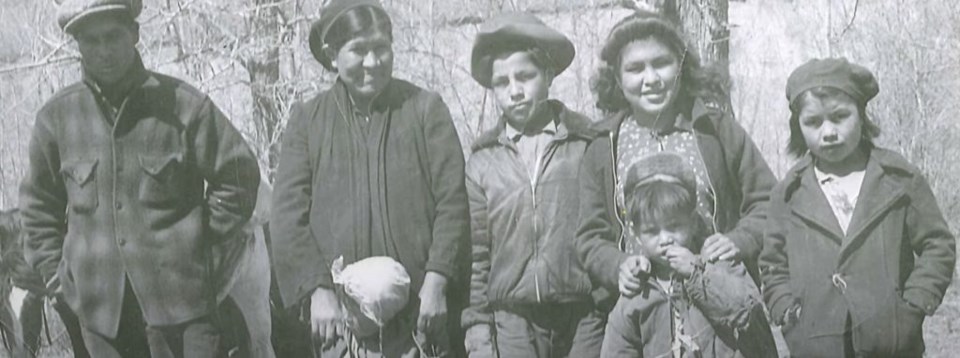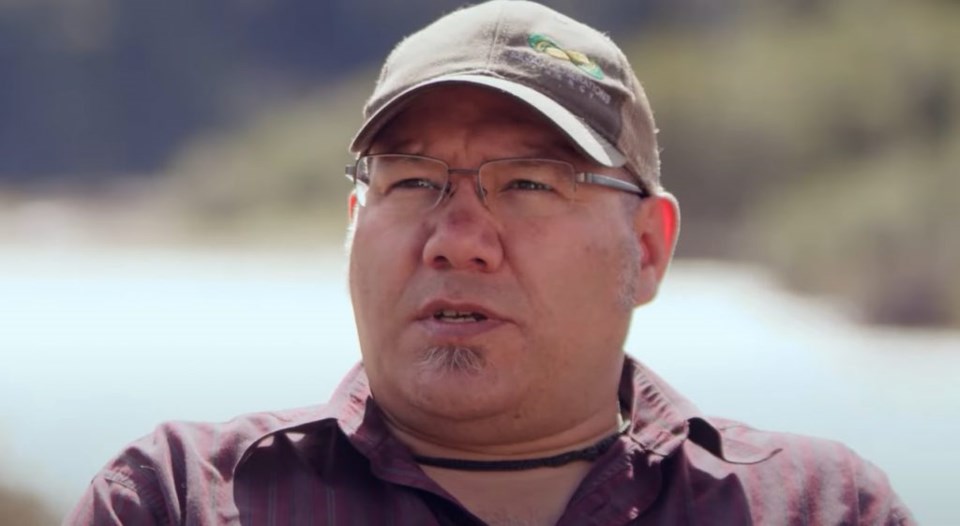
Peter Shokeir | editor@fitzhugh
Jasperties will have the opportunity to learn about the history of the local Indigenous population during a free outdoor screening of a documentary.
In honour of National Truth and Reconciliation Day, “Resilient: The Aseniwuche Winewak Story” will be shown on the outside wall of Jasper’s St. Mary and St. George’s Anglican Church on Sept. 30.
“We’re just the filmmakers, this isn’t our story, this is the Aseniwuche people’s story, but we just have the honour of being able to tell it the best way we could, because it’s such a monster of a story,” said Len Morissette, who wrote and directed the film with Ryan Dalgleish.
Morissette and Dalgleish came up with the idea for this documentary while working on other videos for the Aseniwuche Winewak Nation (AWN).
“They started inquiring about a documentary to tell their story, and then we just got spitballing, some funding became available and we were able just to accomplish it,” Morissette said.
In 1910, the local Indigenous people of the Jasper Valley were pushed out of their homes, and some of the families relocated to the area now known as Grande Cache.
“A lot of the groups, they went in different directions, but we focused on the Aseniwuche, who went into the Grande Cache region,” Morissette said.
The AWN lived as expert guides and trackers, living a traditional lifestyle while under constant watch, until the late ‘60s when the coal mine was established and the town was built.
This 80-minute documentary uses interviews and historical photos to tell their story.
“Because Grande Cache was built in the ‘60s, a lot of the people who we interviewed, they grew up and they were born and raised in the woods living traditionally, and they were 13 to 18 when the town grew out,” Dalgleish said.
“They had a unique, interesting experience that way.”

Morissette described the reception to “Resilient” as positive and noted how their film was accepted by the American Indian Film Festival.
Dalgleish added how the release of the documentary was timely, given the hundreds of unmarked graves recently discovered beneath former residential schools.
“We kind of deal with residential schools in our documentary, so the climate and timing were perfect for the release, so I think it’s been really well received,” he said.
The documentary also deals with the culture clash between the Indigenous peoples and Canadian society.
“It’s just an unbiased documentary on whatever circumstances brought the two nations basically to have that (collision) and the fallout after and then what happened for people to rebuild,” Morissette said.
“But it also gives hope to people working together. The Aseniwuche people, they built their businesses, they stand on their own, they’re non-status, brings the history into the Jasper region.”
Morissette acknowledged Jasper resident Sandy Robinson for helping them connect with the Jasper-Yellowhead Historical Society.
“It’s just such an honour to be so well received within Jasper, and now we’re going to this awesome outdoor festival, and I think that’s true reconciliation right there,” he said.
The Jasper Film Club is organizing the screening in partnership with the Municipality of Jasper’s Community and Family Services department and the Jasper Anglican Church.
The event will have ancillary programming including remarks from the AWN, a Q&A with Morissette and a welcome performance by Warrior Women.
The screening has a maximum capacity of 200 people, and health restrictions will be in place.
Attendees are asked to dress for cool weather and bring a blanket.
The screening begins at 7 p.m. on Sept. 30.



